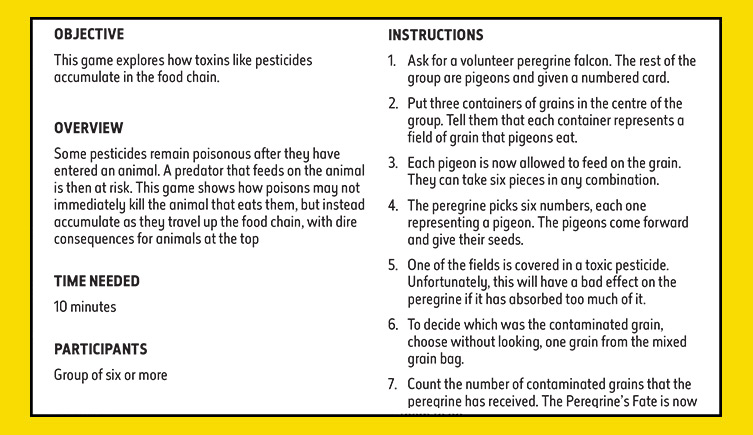Teacher notes
- Extension activity: habitat creation such as installing nest boxes could be a follow-on activity after this session.SCN 2-02a
Planet Earth
Biodiversity and Interdependence
I understand how animal and plant species depend on each other and how living things are adapted for survival. I can predict the impact of population growth and natural hazards on biodiversity. SCN 4-01a
- Describes how plants and animals depend on each other for food, shelter and pollination, using scientific vocabulary such as ‘population’, ‘community’ and ‘species’.
- Explains the possible effects of removal or addition of species on food webs and biodiversity.
- Summarises research findings to provide examples of structural, physiological and behavioural adaptations which lead to species survival.
Through investigations and based on experimental evidence, I can explain the use of different types of chemicals in agriculture and their alternatives and can evaluate their potential impact on the world’s food production. SCN 3-03a
- Interprets data and information to establish a link between the use of fertilisers and plant yield and nutrient levels in the soil.
- Researches an agricultural method, for example, chemical fertilisers, herbicides, pesticides, organic methods, genetic modification (GM) and biological control and evaluates their impact on food production.
I can use my knowledge of the interactions and energy flow between plants and animals in ecosystems, food chains and webs. I have contributed to the design or conservation of a wildlife area. SCN 2-02a
- Describes how energy flows between plants and animals in more complex food chains and webs and ecosystems, using vocabulary such as ‘producers’, ‘consumers’ and ‘herbivore’.
Third Level Scientific Skills
Inquiry and Investigative Skills:
Presents scientific findings:
- Communicates effectively in a range of ways, for example, orally and through scientific report writing
Scientific Analytical Thinking Skills:
- Applies scientific analytical thinking skills, with increasing independence, working with less familiar and more complex contexts.
- Applies understanding of an increasing range of science concepts to solve problems and provide solutions.
Skills and Attributes of Scientifically Literate Citizens:
- Demonstrates understanding of the impact of science on society and debates and discusses the moral and ethical implications of some scientific developments, demonstrating respect for the views of others.




